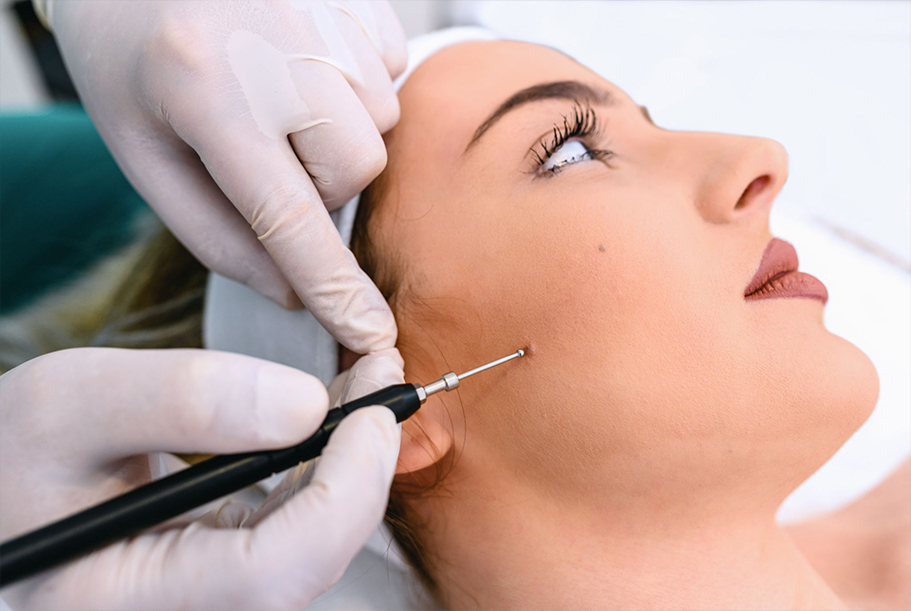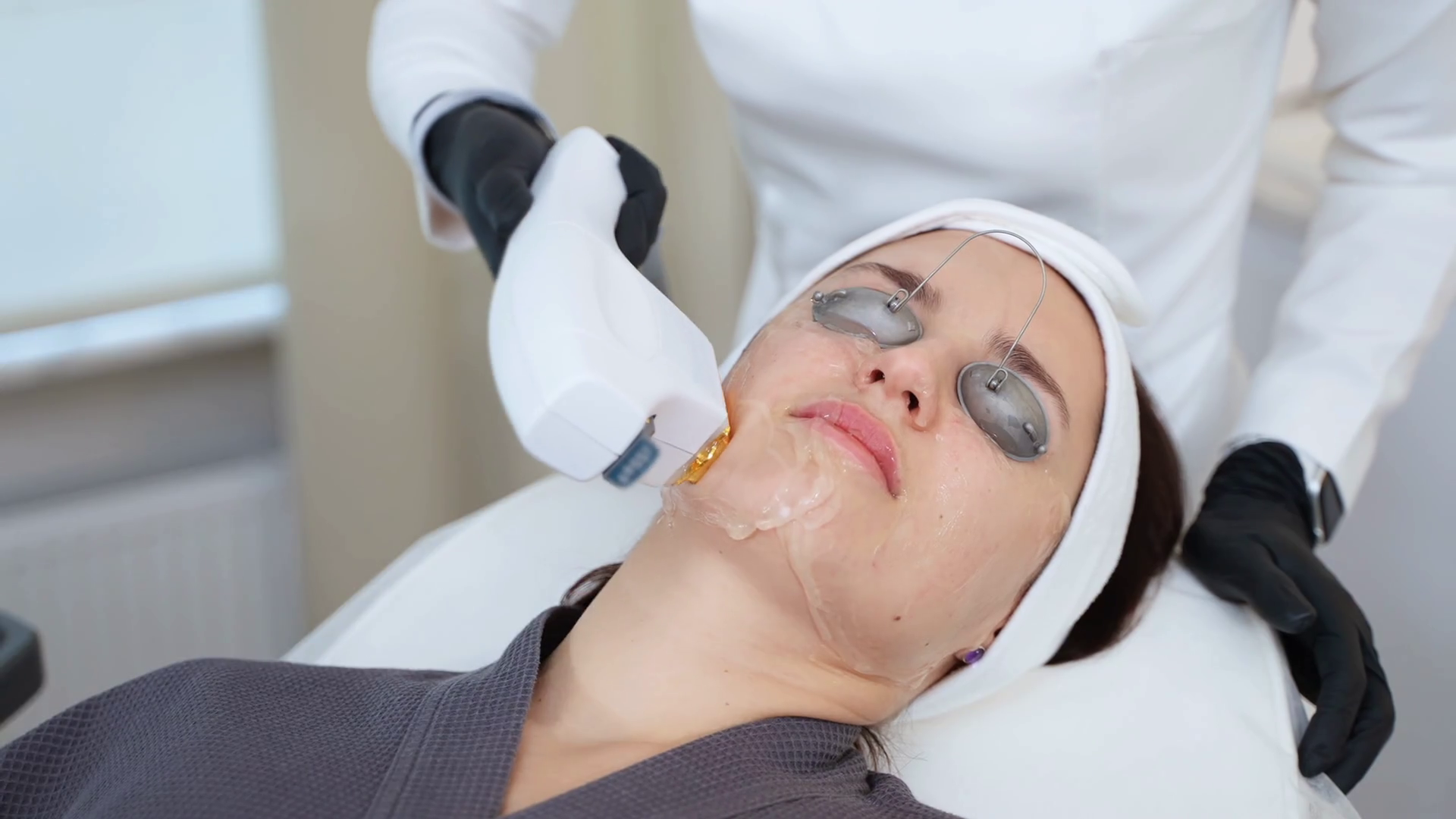The tragic death of a 27-year-old woman in Tianjin, China, after undergoing a series of laser treatments for spot and birthmark removal has ignited significant public concern. This incident raises crucial questions about the safety and oversight of cosmetic procedures in the rapidly expanding industry.
Liu’s case is more than an isolated tragedy; it reflects broader issues within China’s booming cosmetic surgery sector, where thousands seek enhancements with little assurance of safety and accountability.
The Story of Liu: A Journey Turned Tragic
Liu, diagnosed with neurofibromatosis and café-au-lait spots, sought medical intervention to address skin irregularities. These spots, while generally harmless, can impact an individual’s appearance and self-esteem significantly.
After choosing Jinmen Dermatology Hospital, a private clinic in Tianjin, Liu underwent nine laser treatments, reportedly spending over 100,000 yuan (approximately US$14,000). Each procedure aimed to reduce the visible spots on her body, but the journey soon turned into a nightmare.
Despite repeated treatments, Liu began experiencing worsening symptoms. Her mother noted that Liu once paused treatment due to excruciating pain from uneven anesthesia application.
This indicates potential lapses in procedural care or the management of patient comfort—critical factors in any medical treatment, particularly one as delicate as laser therapy.
Read : ‘Hijab Removal Treatment Clinic’ Started in Iran for Women Who Refuse Hijab
On October 21, during her tenth session, Liu’s condition deteriorated rapidly. She felt dizzy after an anesthetic cream application.
Read : The Truth Behind the Viral Instagram Reel Claiming Electric Shock Treatment Will Cure Acne Overnight
Despite the clinic’s efforts to reverse the effects by removing the cream, Liu went into shock, suffered convulsions, and ultimately experienced cardiac arrest. Emergency services transported her to another hospital, where she succumbed to complications related to intracranial pressure 10 days later.
The Rapid Rise and Regulatory Challenges of China’s Cosmetic Industry
Liu’s death highlights systemic issues within China’s cosmetic surgery landscape. Over the past decade, this industry has grown exponentially, fueled by rising disposable incomes, shifting cultural attitudes, and the pervasive influence of social media.
The desire for aesthetic perfection has driven many to seek cosmetic treatments, often without fully understanding the risks involved.
However, this rapid expansion has not been matched by equally robust regulatory oversight. Reports indicate that only 12% of the 13,000 cosmetic clinics in China comply with legal standards.

Many operate in a gray area, where safety protocols and patient care may be compromised. The incident involving Liu underscores the potential dangers of undergoing procedures in such establishments.
Private clinics, like Jinmen Dermatology Hospital, often lack the comprehensive emergency care capabilities found in larger, state-run hospitals. One of Liu’s friends alleged on social media that inadequate emergency protocols at the clinic contributed to a missed opportunity to save her life.
This accusation raises serious questions about the preparedness of smaller clinics to handle complications—especially those involving anesthesia, which can have life-threatening consequences if mismanaged.
Public Reaction and Calls for Reform
The incident has sparked a firestorm of discussion on Chinese social media platforms, particularly Weibo, where related topics have amassed over 58 million views. The public outcry reflects a growing awareness of the risks associated with cosmetic procedures and a demand for greater accountability.
Many online commentators expressed sympathy for Liu, emphasizing that her decision to seek treatment was not merely about vanity but addressing a condition that impacted her mental health.
Café-au-lait spots, though benign, can significantly affect a person’s confidence and social interactions. This perspective challenges the often simplistic view of cosmetic surgery as purely aesthetic, highlighting its psychological dimensions.

Others pointed to broader systemic issues within China’s medical industry. One commenter noted the disparity in quality between private clinics and public hospitals, arguing that the former often lack the safety and reliability necessary for complex procedures. Another underscored the need for stricter regulations, stating that tragedies like Liu’s could be avoided if all clinics adhered to stringent safety standards.
This incident is not an isolated case. Fatalities related to cosmetic procedures have been reported across China. In January of the previous year, a 43-year-old woman died during a liposuction procedure due to medical negligence.
In December 2020, another woman lost her life after undergoing six cosmetic procedures within 24 hours. These cases underscore the urgent need for reform and better oversight within the industry.
Safety, Accountability, and Patient Education
Liu’s tragic death serves as a stark reminder of the potential risks associated with cosmetic surgery. It highlights the importance of informed decision-making, stringent regulatory oversight, and the need for clinics to prioritize patient safety over profit. As the cosmetic industry continues to grow, ensuring that safety standards keep pace with demand is critical.
For prospective patients, Liu’s story underscores the importance of thorough research and careful consideration when choosing a clinic.
Factors such as the clinic’s reputation, adherence to safety protocols, and the availability of emergency care should be paramount. Patients must also be fully informed about the risks associated with their chosen procedures and the qualifications of the medical staff performing them.

On a broader level, Liu’s case calls for systemic reforms within China’s cosmetic industry. Stricter regulations, more rigorous licensing processes, and regular inspections are essential to ensure that all clinics—public and private—meet the highest safety standards. Medical professionals must also receive comprehensive training, particularly in managing complications and administering anesthesia.
Public awareness campaigns can also play a crucial role in promoting safer practices. Educating people about the risks associated with cosmetic surgery and the importance of choosing reputable clinics can help prevent future tragedies. Additionally, fostering a culture that values health over aesthetics can reduce the pressure many feel to undergo potentially risky procedures.
Liu’s death is a tragic reminder of the need for vigilance, both at the individual and systemic levels. It highlights the human cost of inadequate regulation and the critical importance of patient safety in the rapidly growing cosmetic industry.
As China continues to navigate the complexities of this sector, ensuring that safety and accountability remain top priorities will be essential in preventing future tragedies.

